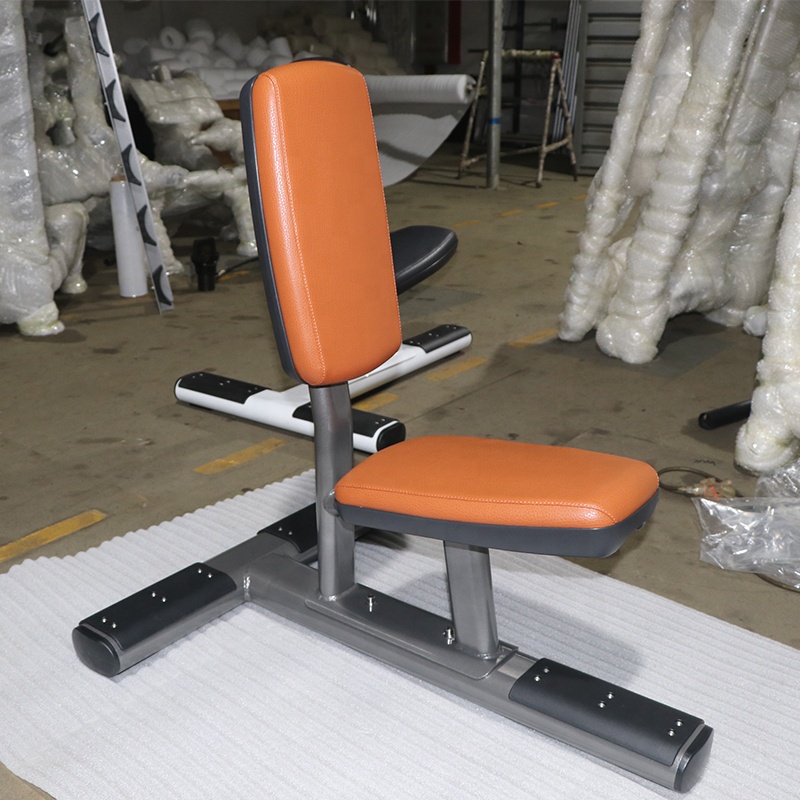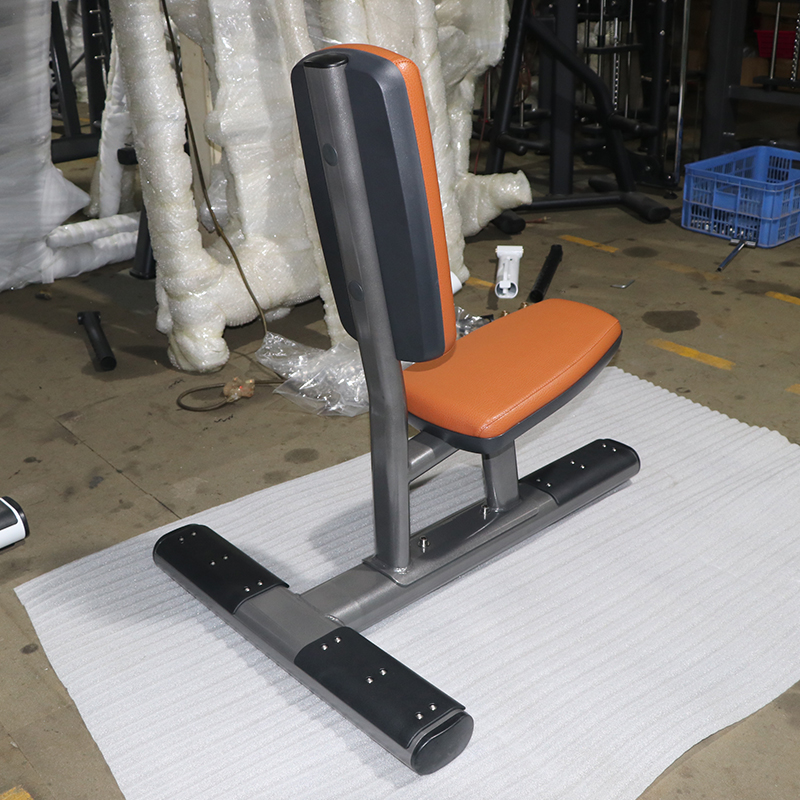Remember, genetics, nutrition, and overall fitness also play a role in muscle growth. A balanced diet rich in protein and sufficient calories, combined with strength training, will support chest muscle development.Why is dumbbell bench harder than normal bench? Dumbbell bench press can be perceived as more challenging than barbell bench press for several reasons:
1. Unilateral Load: With dumbbells, you're working with one arm at a time, which requires greater stability, core engagement, and coordination. This asymmetry can lead to increased muscle activation and work on stabilizing muscles like the obliques and erector spinae.
2. Greater Range of Motion: Dumbbell bench press allows for a more natural, full range of motion compared to barbell bench press, where your hands are fixed in position. This increased ROM can lead to greater muscle activation and a more effective workout.
3. More Muscle Activation: Since you're controlling the weight with only one arm, both the dominant and non-dominant muscles are engaged simultaneously. This can lead to a more balanced muscle development across your chest, shoulders, and triceps.
4. Adjusting for Balance: Maintaining balance while lowering and raising the dumbbells adds an extra challenge that can fatigue your stabilizer muscles faster.
5. Progressive Difficulty: Dumbbell bench press can be performed with variable weights, allowing for progressive overload without increasing the total load. This can make it more difficult to maintain proper form over time.
6. Individual Strength Differences: Some individuals might find dumbbell bench press easier if they have a strength imbalance or prefer the feel of using lighter weights, but for others, it may be more difficult due to the additional demands placed on their body.
It's important to note that difficulty can vary from person to person, and factors such as technique, fitness level, and individual strengths play a significant role. Both exercises have their benefits and can be part of a well-rounded training program.Why can't l feel my chest during dumbbell bench press? It's not uncommon for individuals, especially beginners or those with limited experience in weightlifting, to not feel a strong connection to their chest muscles during a dumbbell bench press. There could be several reasons for this:
1. Technique: Poor form or technique can prevent the targeted muscles from engaging effectively. Make sure you're using proper bench press form, keeping your back straight, and lowering the dumbbells slowly and controlled.
2. Muscle activation: If your mind isn't fully focused on recruiting your chest muscles, they might not fire as intensely. Concentrate on the sensation in your chest while performing the exercise.
3. Overhead pressing: The dumbbell bench press primarily targets the pectoralis major (chest), but also involves the shoulders and triceps to a lesser extent. If your grip, range of motion, or weight is too high, the emphasis might shift away from the chest.
4. Strength imbalance: If your upper body strength is imbalanced, you might not feel as much activation in your chest. Work on exercises that target your chest directly, such as barbell or machine chest press, to strengthen that muscle group.
5. Fatigue: If you're lifting too heavy or pushing yourself too hard, you might be relying on momentum or other muscles to complete the movement. Gradually increase weight and focus on form to ensure the chest is engaged.
6. Muscle conditioning: If you haven't been training your chest muscles regularly, they may not be as developed, making it harder to feel the contraction. Incorporate more chest-focused exercises into your routine.
7. Nerve irritation: In rare cases, nerve compression or irritation can cause a lack of sensation. This is less likely, but if you experience pain or numbness, consult a professional.
Remember, it's essential to progress gradually, maintain proper form, and work on your overall muscular development to feel a stronger connection to your chest during dumbbell bench press.Does a dumbbell build the chest? Yes, a dumbbell can be an effective tool for building the chest muscles, also known as pectoralis major. Dumbbells allow for a variety of chest exercises that target different aspects of the muscle group, providing a balanced workout. Some popular chest exercises using dumbbells include:
1. Dumbbell bench press: This exercise primarily targets the pectoralis major, while also engaging the triceps and shoulders.
2. Incline dumbbell press: Focusing on the upper chest, this variation places more emphasis on the upper pectorals.
3. Decline dumbbell press: Targets the lower portion of the chest and strengthens the trapezius muscles.
4. Dumbbell flyes: Works the inner chest and helps to improve muscle symmetry.
5. Close-grip dumbbell press: Develops the triceps and the outer chest.
It's important to note that building a well-rounded chest requires not only working with dumbbells but also incorporating other exercises like push-ups, barbell bench press, or cable crossovers, along with proper nutrition and sufficient rest. Remember to use appropriate weights, maintain proper form, and gradually increase resistance over time to see progress in chest development.Is it impressive to bench your bodyweight? Benching your bodyweight can be impressive, especially for beginners or those who have not been lifting weights regularly. It demonstrates strength, muscular endurance, and the ability to control and move your own body weight effectively. However, it's important to consider the context and relative difficulty.
For someone who is new to weightlifting or fitness, being able to perform a bodyweight bench press or other bodyweight exercises can signify a solid foundation in strength and technique. On the other hand, experienced lifters may find it less impressive if they can easily perform multiple repetitions with much heavier weights.
In any case, it's essential to remember that everyone has different starting points and progress at their own pace. What may be impressive for one person might not be for another. The most important thing is to focus on consistent progress and personal improvement rather than comparing oneself to others.Is it better to bench Light or heavy? The choice between benching light weights or heavy weights depends on your fitness goals, current strength level, and the specific exercise you're performing. Here's a breakdown of when to use each:
1. **Strength Training**: If your goal is to build strength, focus on heavier weights with lower repetitions (1-5 reps). This is known as resistance training or powerlifting. Heavier weights will challenge your muscles to generate more force and lead to muscle hypertrophy over time. Start with a weight that allows you to perform 1-3 reps with proper form, and gradually increase the load as you progress.
2. **Volume Training**: If your goal is muscular endurance or muscular hypertrophy (gaining size), you'll want to use lighter weights with higher repetitions (8-15 reps). This type of training is often called hypertrophy training. The focus here is on consistency and high volume, which can stimulate muscle growth without excessive fatigue.
3. **Conditioning**: If your goal is cardiovascular conditioning or calisthenics, lighter weights or bodyweight exercises are more appropriate. These movements can help improve muscular endurance and overall fitness without putting too much strain on joints.
4. **Recovery**: For beginners or those returning from an injury, starting with lighter weights and mastering proper form is crucial. Gradually increasing weight and intensity will prevent injury and allow for better adaptation.
Remember to always prioritize form and technique over the amount of weight lifted. It's better to lift with proper form using a weight that challenges you but still allows for good execution, rather than risking injury by lifting too heavy. Consult with a personal trainer or fitness professional to develop a training plan tailored to your individual needs and goals.Does being heavier help you bench more? In general, having more muscle mass and overall body weight can contribute to increased strength in exercises like the bench press. This is because the bench press is a compound exercise that primarily engages the pectoral muscles (chest), triceps, and shoulders, but also involves the anterior deltoids, upper back, and core to some extent.
A heavier individual with proportionate muscle mass may have greater intramuscular strength, which can lead to lifting heavier weights. However, it's important to note that factors such as technique, training experience, and neuromuscular coordination also play significant roles in bench press performance. Simply being heavier does not guarantee better performance if one lacks proper form or has not developed the necessary muscular endurance and strength.
Moreover, increasing weight alone without focusing on progressive overload, proper nutrition, and sufficient recovery can lead to injury rather than improvements in strength. Therefore, it's crucial to train effectively, progress gradually, and maintain a balanced approach to maximize bench press performance, regardless of your weight.Which bench is good for home workouts? When it comes to home workouts, the choice of bench depends on the exercises you plan to perform and the space you have available. Here are some options that can be suitable for different types of workouts:
1. Adjustable Fitness Bench: This versatile bench allows you to change the incline, which is great for exercises like bench press, incline press, decline press, and various other chest, shoulder, and tricep workouts. It offers flexibility and adaptability to your training needs.
2. Folding Bench: A folding bench is compact and space-saving, making it perfect for small homes or apartments. It's ideal for bodyweight exercises, push-ups, dips, and other floor-based workouts.
3. Solid Wood Bench: A sturdy wood bench provides a stable base for weightlifting, especially if you don't need the incline feature. It may not be as adjustable as an adjustable bench but is durable and long-lasting.
4. Weight Plate Storage Bench: This type of bench combines a solid bench with storage compartments for holding weights, saving you space and keeping your workout area organized.
5. Olympic Barbell Bench: If you're serious about heavy lifting, an Olympic barbell bench is essential. It typically has a thick, flat surface and is designed to support the rigors of barbell exercises like squats, deadlifts, and overhead presses.
6. Incline/Decline Bench: This specialized bench offers fixed incline and decline positions, which are useful for targeting specific muscle groups in isolation.
When choosing a bench, consider the exercises you'll do, your budget, and the available space in your home gym. Make sure the bench is sturdy, comfortable, and suits your fitness goals.







